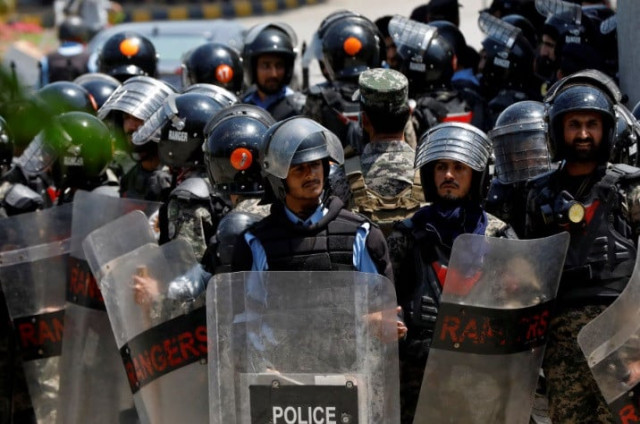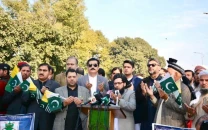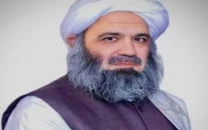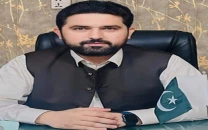Emergency: pros and cons
Legal experts see talk of extreme step as a means to extend govt tenure

As the government weighs the option of imposing emergency, in the words of federal ministers, to arrest the deteriorating situation in the country, legal experts question the actual motive behind the consideration of the extreme measure, stating that even if the approval of the president issue was dealt with, the circumstances requiring to impose emergency were ‘currently’ not there.
As the country gradually returns to normalcy after PTI Chairman Imran Khan was granted bail by the IHC, the talk of emergency re-emerges, with claims that the federal government had even discussed the option in Friday’s cabinet meeting.
Rebutting media reports in this regard, Information Minister Marriyum Aurangzeb in a statement said that the government has not taken any such decision. The statement, however, did not deny that the issue came up for discussion during the cabinet meeting. Two federal ministers have already indicated that the government was weighing the option of emergency.
Legal experts on the other hand questioned the actual motive behind the move, with some seeing it as a means to prolong the government tenure that is completing its five-year constitutional term in August. Former attorney general of Pakistan and former special assistant to Prime Minister of the incumbent government, Irfan Qadir while talking to The Express Tribune, said there was no substance to the debate. “Government ministers say such things for media consumption”.
He said the government requires the approval of the president or a provincial assembly’s resolution, and both the options were not available to it. He said that the president can be advised by the prime minister to impose a state of emergency under Article 232. However, when asked can the president not use his own discretionary powers under Article 48(2) and refuse to accept the prime minister’s advise, Irfan said that indeed, he could. He said that this in any way remain a very difficult option for the government.
Justice (retd) Wajehuddin Ahmad, while talking to The Express Tribune, said that the circumstances required to impose the emergency were not there, to begin with. He, lamenting the decision of calling paramilitary forces to control the law and order situation, said that no such circumstances had arisen requiring the need for paramilitary forces to be called out. “Police could have easily managed the situation.”
“The only reason for considering the imposition of emergency seems to be, to extend their (government) tenure,” he stated. He said in a situation, where two assemblies were not available, ninety days limit for conducting elections had exhausted, and only around two months are left to the expiry of the tenure of the National Assembly and the remaining provincial assemblies, the only beneficiary of this step would be the central government.
He said that considering the option was one thing, but imposing it would be tall order as it requires satisfaction of the president, which means that he can even refuse to act on the cabinet’s advice. He said that during emergency, the government had powers to suspend fundamental rights. He said that usually courts do not intervene in the event of imposition of emergencies, but in exceptional circumstances, courts can review any decision of the cabinet.
Former Justice and senior jurist Nasira Javeed said that the government and the party in power were saying and doing what they desire, disregarding the law and the Constitution at every step of the way.
She said that a coalition partner was planning to hold a dharna outside the Supreme Court. She said that the issue of imposition of the emergency might require the president’s approval, but the way it had used strong arm tactics with every institution, the government might even force the president to ascent to it.
Senior lawyer Hamid Khan, while talking to The Express Tribune, said that the government was in fact trying to create the necessary circumstances to impose emergency. He said that by delaying elections, the government has created the circumstances that are not covered under the Constitution.
He said that how they could impose emergency in Punjab and K-P where assemblies were not available. “Whose power will the government assume, if emergency is imposed?”
“The Punjab and K-P caretaker governments do not enjoy complete powers,” he said and added that by violating one article of the Constitution of not holding elections within 90 days, the government was pushing the entire country towards anarchy, as the Constitution was completely silent on problems that we today find the country in.
Article 232 of the Constitution, “Proclamation of emergency on account of war, internal disturbance, etc.,” reads “ (1) If the President is satisfied that a grave emergency exists in which the security of Pakistan, or any part thereof, is threatened by war or external aggression, or by internal disturbance beyond the power of a Provincial Government to control, he may issue a Proclamation of Emergency.
Provided that for imposition of emergency due to internal disturbances beyond the powers of a Provincial Government to control, a resolution from the Provincial Assembly of that Province shall be required: Provided further that if the President acts on his own, the Proclamation of Emergency shall be placed before both Houses of Majlis-e-Shoora (Parliament) for approval by each House within ten days.



















COMMENTS
Comments are moderated and generally will be posted if they are on-topic and not abusive.
For more information, please see our Comments FAQ